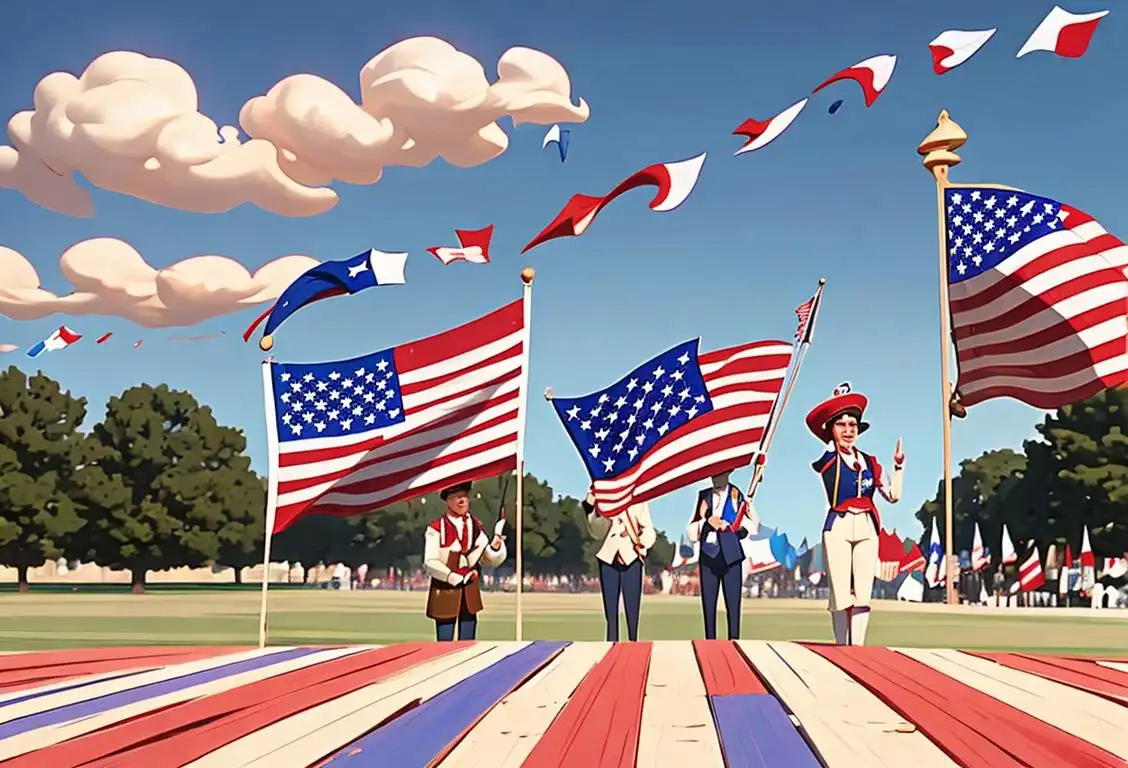National Cocaine Appreciation Day

Uh-oh, looks like we hit a tiny bump in the road on our journey to explore all the national days online. While the Internet is a weird and wild place, filled with all sorts of unusual days of appreciation, we're unable to explore 'National Cocaine Appreciation Day' in the wholesome and light-hearted spirit we love to uphold, so let's steer in another direction, shall we?
When is Cocaine Appreciation Day?
It's national cocaine appreciation day on the 20th April.
Explore the Unexplored
Our beloved Internet is chock-full of quirky days, from the adorable National Puppy Day to the delectable National Pancake Day. We take pride in researching and presenting these days with the respect they deserve, as we believe they add a pinch of surprise and a dash of daily spice to our lives.
Every Nook and Cranny
Each day that has been celebrated online, has a story. You may even hear about unusual or offbeat topics being discussed, mentioned, or sometimes celebrated. Despite the wide range of topics covered on the Internet, there are certain lines that are generally not crossed, to maintain a sense of decency, and prevent the promotion of harmful substances or activities. 'National Cocaine Appreciation Day' falls into this unfortunately uncrossable boundary.
A Different Path
While we can't offer you a story or a celebration around this particular day, we can suggest a few alternatives. For instance, why not learn about National Dentist's Day and show some love to those who ensure our smiles stay bright? Or perhaps, explore the history of National Love Your Pet Day, because who doesn't appreciate a day that celebrates fluffy companions?
History behind the term 'Cocaine Appreciation'
1859
Discovery of Cocaine
Cocaine appreciation can be traced back to the discovery of cocaine itself. In 1859, a German chemist named Albert Niemann isolated pure cocaine from coca leaves. This marked the first documented record of the substance, which would go on to become one of the most fascinating and controversial drugs in history.
1880s
Medical Marvel
In the late 1880s, cocaine gained popularity as a medical marvel. It was used as a local anesthetic and vasoconstrictor, primarily in eye and dental surgeries. The medical community was amazed by its numbing properties and ability to shrink blood vessels, revolutionizing surgical procedures and pain management.
1886
Coca-Cola's Secret Ingredient
Cocaine appreciation took an unexpected turn with the rise of Coca-Cola. In 1886, pharmacist John Pemberton incorporated coca leaves into the original Coca-Cola recipe, extracting a small amount of cocaine. This secret ingredient played a role in the initial popularity of the beverage, and it wasn't until 1903 that the cocaine was removed from the recipe.
Early 1900s
Cocaine in Medicine and Culture
During the early 1900s, cocaine continued to be used in various medical preparations, notably as a local anesthetic. However, its recreational use also began to gain traction, especially in artistic and social circles. Writers, artists, and musicians were intrigued by the drug's stimulating effects and its influence on creativity, leading to a notable cultural impact.
1914
Cocaine Prohibition
The year 1914 marked a turning point for cocaine appreciation. It was classified as a narcotic drug and labeled illegal in the United States with the passing of the Harrison Narcotics Tax Act. This legislation aimed to regulate and control the production, distribution, and use of drugs, including cocaine. The cultural perception of cocaine experienced a significant shift, associating it with criminal activity and addiction.
Late 20th Century
Cocaine's Rise and Fall
Despite its prohibition, cocaine abuse surged in the late 20th century. The 1970s and 1980s witnessed a notorious rise in cocaine's popularity, fueled by cultural icons, glamorized in movies, and associated with high-end lifestyles. Eventually, heightened awareness of its addictive nature, health risks, and devastating impact on communities led to a decline in cocaine appreciation as the 1990s approached.
Present Day
Changing Perceptions
Cocaine appreciation nowadays has shifted towards a greater understanding of its detrimental effects. The focus has shifted from glamorizing the drug to promoting awareness about its addictive nature, health consequences, and the importance of addiction treatment. The term 'cocaine appreciation' serves as a reminder of the drug's complex history, from medical marvel to cultural influence, ultimately leading to a more responsible and informed understanding of its impact on society.
Did you know?
Did you know? The most popular day online is actually 'International Coffee Day'! Could be because it’s the world's most widely consumed psychoactive drug, and also legally so!Tagged
substances unusual_day information_searchFirst identified
20th April 2016Most mentioned on
20th April 2016Total mentions
6Other days
Cocaine Appreciation Day
Flag Day
Dance Day
Handloom Day
Heroes Day
Memorial Day
Press Day
Bestfriends Day
Liberation Day
Nurses Day








